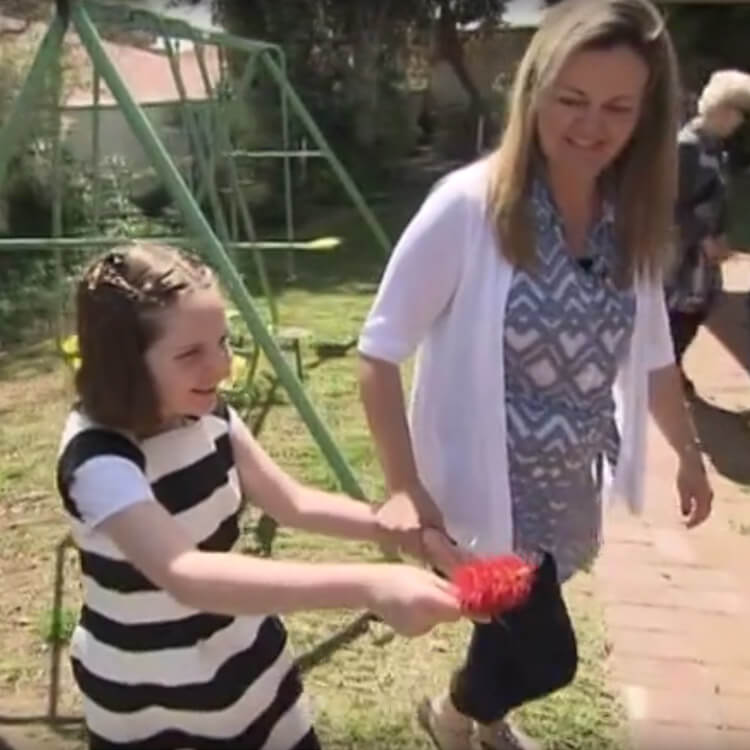Search
Research
Strengths and challenging behaviors in children and adolescents with Prader-Willi syndrome: Two sides to the coinPrader-Willi Syndrome (PWS) is a rare genetic disorder associated with emotional/behavioral disturbances. These difficulties are well documented in the literature, but the positive attributes of these individuals are not described.

News & Events
Perth researchers unlocking mystery of rare seizure diseaseResearchers at The Kids Research Institute Australia are one step closer to finding better treatments for a rare disease causing children to have multiple seizures a day.

News & Events
Folate researcher awarded for work to prevent birth defectsProfessor Carol Bower has received the prestigious ICBDSR Distinguished Service Award for her work on birth defects - a career that spans 35 years.
Research
Kindy Moves: the feasibility of an intensive interdisciplinary programme on goal and motor outcomes for preschool-aged children with neurodisabilities requiring daily equipment and physical assistanceTo determine the feasibility of an intensive interdisciplinary programme in improving goal and motor outcomes for preschool-aged children with non-progressive neurodisabilities. The primary hypothesis was that the intervention would be feasible.
Research
How Families Manage the Complex Medical Needs of Their Children with MECP2 Duplication SyndromeMECP2 duplication syndrome (MDS) is a rare, X-linked, neurodevelopmental disorder resulting from the duplication of the methyl-CpG-binding protein 2 (MECP2) gene. The clinical features of MDS include severe intellectual disability, global developmental delay, seizures, recurrent respiratory infections, and gastrointestinal problems. The aim of this qualitative study was to explore how the parents of children with MDS manage their child's seizures, recurrent respiratory infections, and gastrointestinal symptoms, and the impact on them as parents.
Research
Severe Congenital Heart Defects and Cerebral PalsyTo report the prevalence of cerebral palsy (CP) in children with severe congenital heart defects (sCHD) and the outcome/severity of the CP.
Research
Down syndrome and leukemia: from basic mechanisms to clinical advancesChildren with Down syndrome (DS, trisomy 21) are at a significantly higher risk of developing acute leukemia compared to the overall population. Many studies investigating the link between trisomy 21 and leukemia initiation and progression have been conducted over the last two decades.
Research
Can Wearable Inertial Measurement Units Be Used to Measure Sleep Biomechanics? Establishing Initial Feasibility and ValidityWearable motion sensors, specifically, Inertial Measurement Units, are useful tools for the assessment of orientation and movement during sleep. The DOTs platform (Xsens, Enschede, The Netherlands) has shown promise for this purpose. This pilot study aimed to assess its feasibility and validity for recording sleep biomechanics.
Research
Can telehealth increase physical activity in individuals with Rett syndrome? A multicentre randomized controlled trialTo evaluate the effects of a physical activity programme on sedentary behaviour and physical activity in ambulant individuals with Rett syndrome.
Research
Hospitalizations from Birth to 28 Years in a Population Cohort of Individuals Born with Five Rare Craniofacial Anomalies in Western AustraliaTo describe trends, age-specific patterns, and factors influencing hospitalizations for 5 rare craniofacial anomalies.
